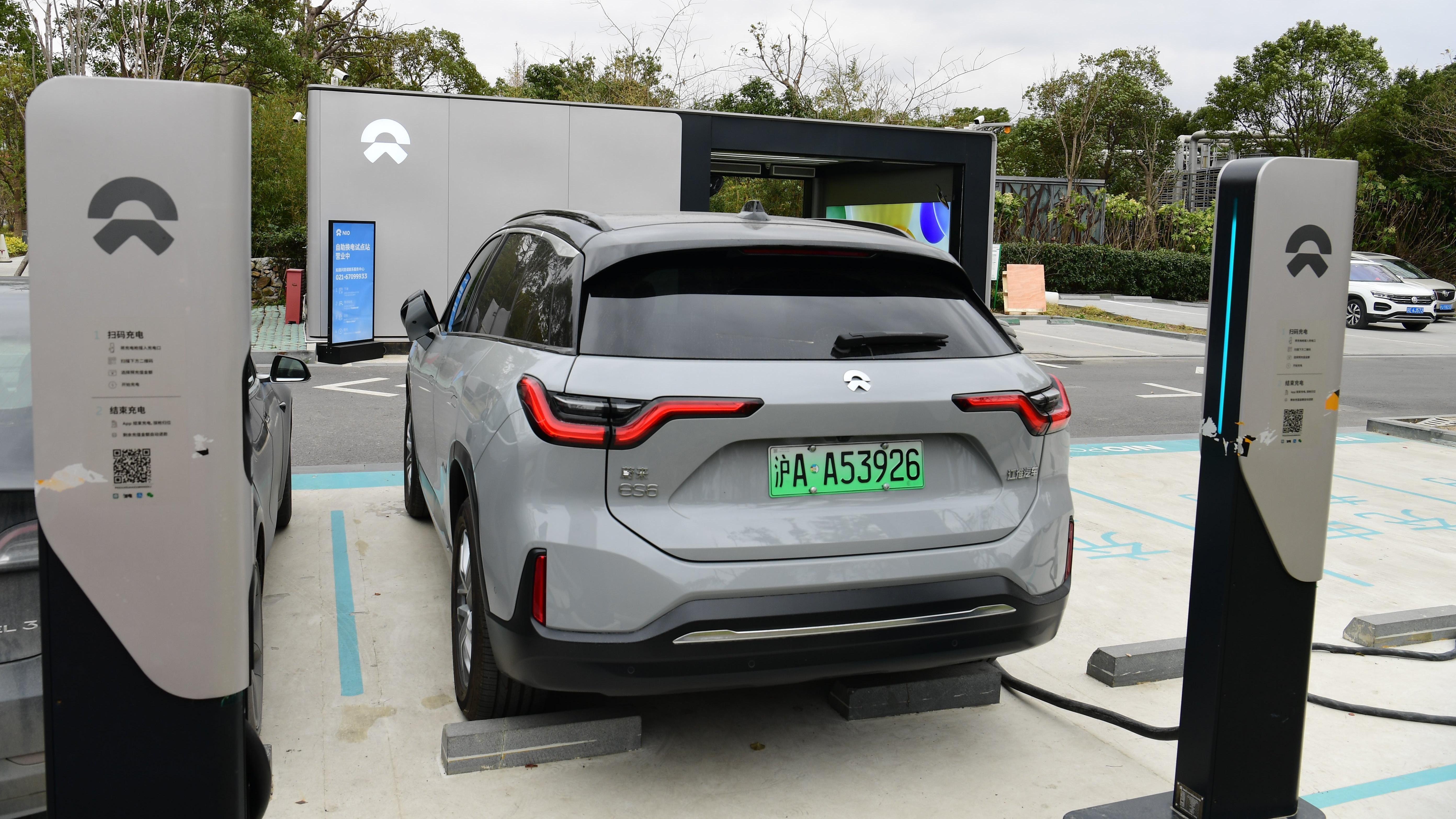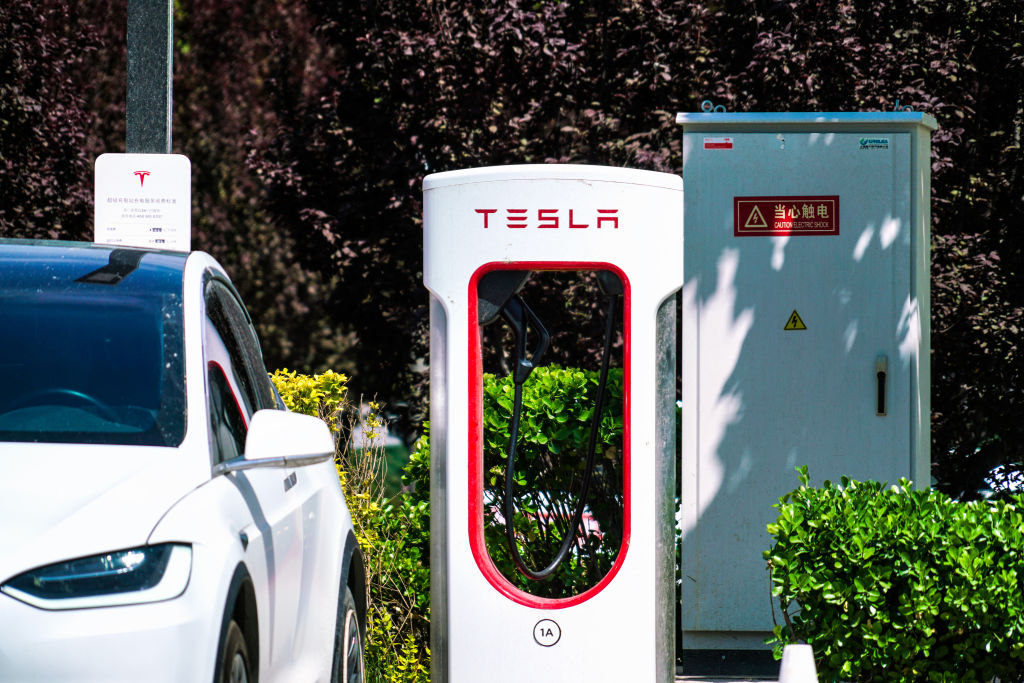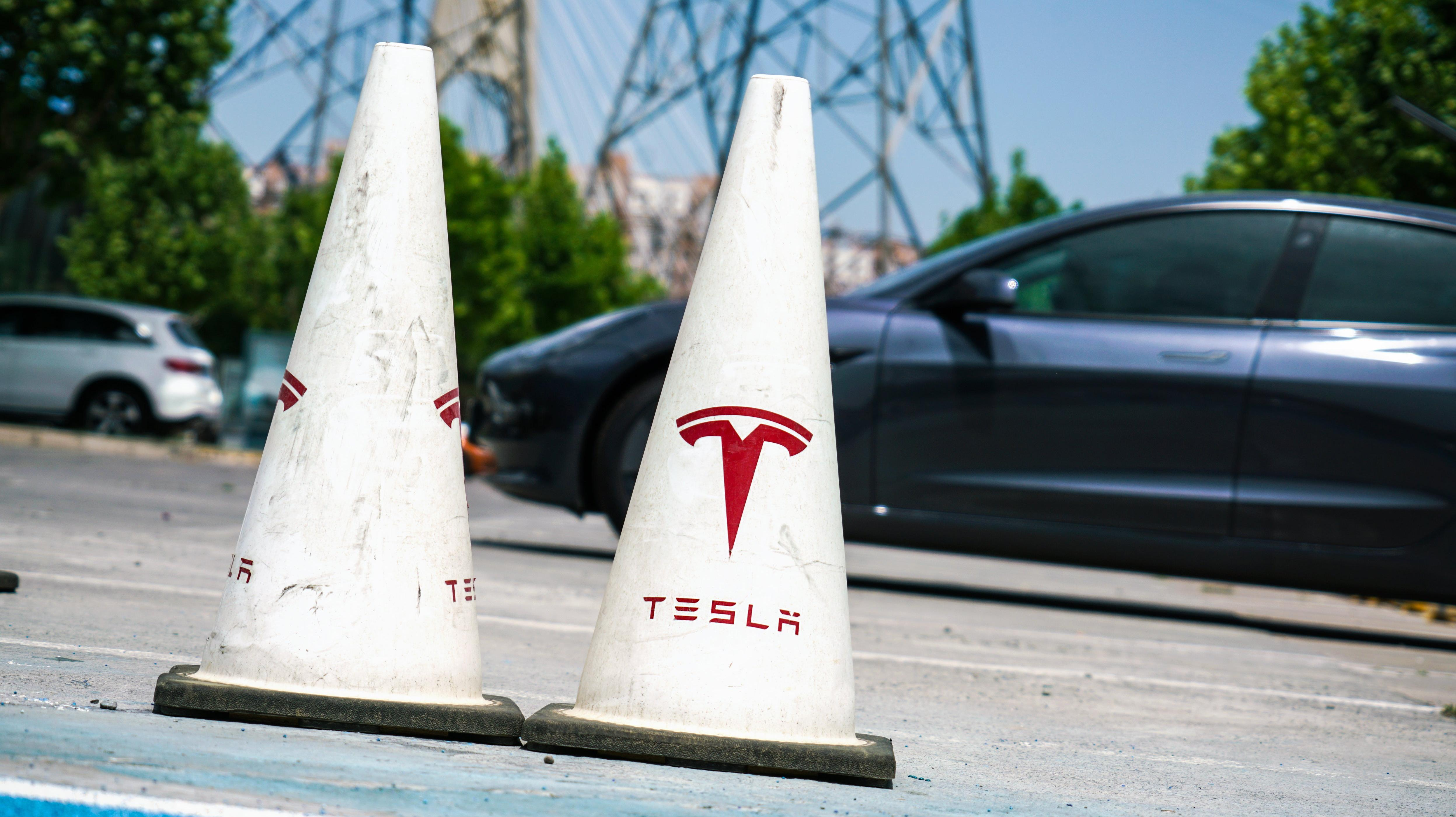China Shuts Down EV Charging Stations To Conserve Power During Heat Wave
Tesla Supercharger stations and Nio battery exchange depots are being suspended as Sichuan province struggles with unprecedented high temperatures.
China's power grid is still under duress amidst the worst heatwave the country has seen in half a century. Now, electric carmakers Tesla and Nio are shutting down some of their charging stations in Sichuan province to save energy and help keep the lights on in Chinese homes, Bloomberg reports.
Owners of EVs from Tesla and Nio report that they first learned about certain charging stations in the city of Chengdu going offline through charger-locating apps. Charging is being suspended as far away as Chongqing, a city just under 200 miles east of the Sichuan capitol.
Sichuan's power production has plummeted during the heatwave. The province relies on hydroelectric dams, but rivers in the region are at dangerously low water levels. The reduced hydropower output prompted city officials to shut down factories making microchips and those that process lithium for EV batteries, too.
The factory closures are likely to affect vehicle production throughout China. Automakers responded to the factory shutdowns by asking the government to intervene, and funnel remaining power production to factories producing automotive components.
But the historic heatwave and subsequent drought are not just affecting EV production; they're now impacting EV ownership as well. Tesla has restricted or suspended charging altogether at over a dozen Supercharger stations in Chengdu and Chongqing. Local reports say just two Tesla stations are left operational, and since August 17th they've only been running at night.

Nio says "severe overload on the grid" has forced the company to temporarily suspend stations where owners can swap their car's empty battery pack for a full one. There's just not enough power to recharge the depleted batteries.
The exchange method is sound as far as ease-of-use and charging speed go, but what can owners do when there's no power at all? Since Nio's battery-swap stations are closed for the time being, the company is asking owners in Sichuan to share their home charging stations with owners who don't have one for the next month, from August 20 through September 20.
Bloomberg reports some Nio owners are helping fellow owners by swapping nearly-dead batteries at Nio exchange stations with their own fully-charged batteries, which, presumably, have been recharged overnight at homes.
That cooperation is one bright spot in this otherwise bleak situation China is going through amid a brutal heatwave. The U.S. underwent a similar situation, with Tesla asking owners in Texas to avoid charging during peak daytime hours. In Texas, this was a suggestion from Tesla; in China, the charger shutdowns are government mandated.

